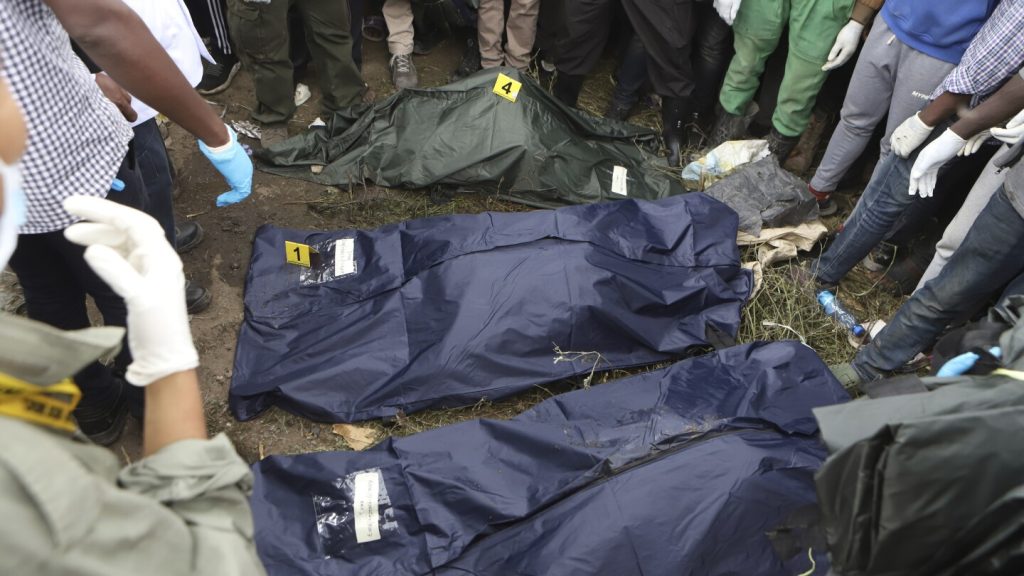Western envoys in Kenya have expressed concerns over reports of arbitrary arrests and enforced disappearances, urging swift investigations as the country takes up its seat on the United Nations Human Rights Council. The envoys stated their support for Kenya in addressing the alleged human rights violations, including the arbitrary detention of government critics and cases of people going missing, only for their mutilated bodies to be discovered days later. This statement comes in the wake of Kenya being elected to the U.N human rights council on October 9. The envoys also condemned the recent abduction and forced repatriation of four Turkish nationals who were registered as asylum seekers with the U.N.
Amnesty International Kenya highlighted the violation of the principle of non-refoulement in Kenyan law due to the abduction and forced return of the Turkish nationals. Non-refoulement, as per international law, prohibits the return of individuals to countries where they would face torture, cruel treatment, or other forms of irreparable harm. The Kenya National Commission on Human Rights reported investigating cases of extrajudicial killings and enforced disappearances since June, with 60 cases of the former and 71 cases of the latter. These reports shed light on the ongoing human rights challenges faced in the country, despite its recent election to the U.N human rights council.
Kenya has seen a wave of anti-government protests, leading to the storming and burning of parliament in June, resulting in fatal shootings of protesters. The police recently reported an alarming rate of gender-based violence, with 97 women killed by men in the last three months. The deputy inspector general of police, Eliud Kipkoech Langat, highlighted an increase in murder and manslaughter cases, labeling it a troubling trend. The discovery of the mutilated bodies of three women who had gone missing further underscores the issue of violence against women. In July, nine dismembered bodies of women were found in Nairobi, with a male suspect arrested and later escaping police custody.
There have been accusations against the Kenyan government by human rights groups regarding the use of arrests and abductions as a means to silence critics. A popular activist, Boniface Mwangi, was reportedly detained by unidentified individuals and held at a police station for a day before being released without charge. These incidents raise concerns about the state of human rights and freedom of expression in Kenya, despite its recent election to the U.N human rights council. The government’s response to these allegations and reports of violence against women will be closely watched as pressure mounts on authorities to address the issues and ensure accountability.
The international community, represented by the Western envoys in Kenya, has called for urgent action to investigate the reported human rights violations, including arbitrary arrests, enforced disappearances, and gender-based violence. As Kenya assumes its position on the U.N human rights council, there is an expectation for the country to demonstrate a commitment to upholding human rights standards and addressing the identified challenges. The government’s response to these calls for accountability and justice will be crucial in determining its reputation on the international stage and in ensuring the protection of human rights for all individuals within its borders. By addressing the root causes of violence and discrimination, Kenya can work towards a more inclusive and just society for its citizens.
It is imperative for the Kenyan authorities to prioritize the protection of all individuals within the country, regardless of their political affiliations or activism. The recent incidents of violence against women, enforced disappearances, and arbitrary arrests signal a concerning trend that must be addressed promptly and effectively. The involvement of international partners, such as the Western envoys, provides an opportunity for Kenya to engage in constructive dialogue and cooperation towards improving its human rights record. As the country navigates its role on the U.N human rights council, it must demonstrate a genuine commitment to protecting the rights and freedoms of all individuals, in line with international standards and legal principles. The spotlight on Kenya’s human rights situation underscores the importance of transparency, accountability, and respect for the rule of law in upholding the rights and dignity of its people.


